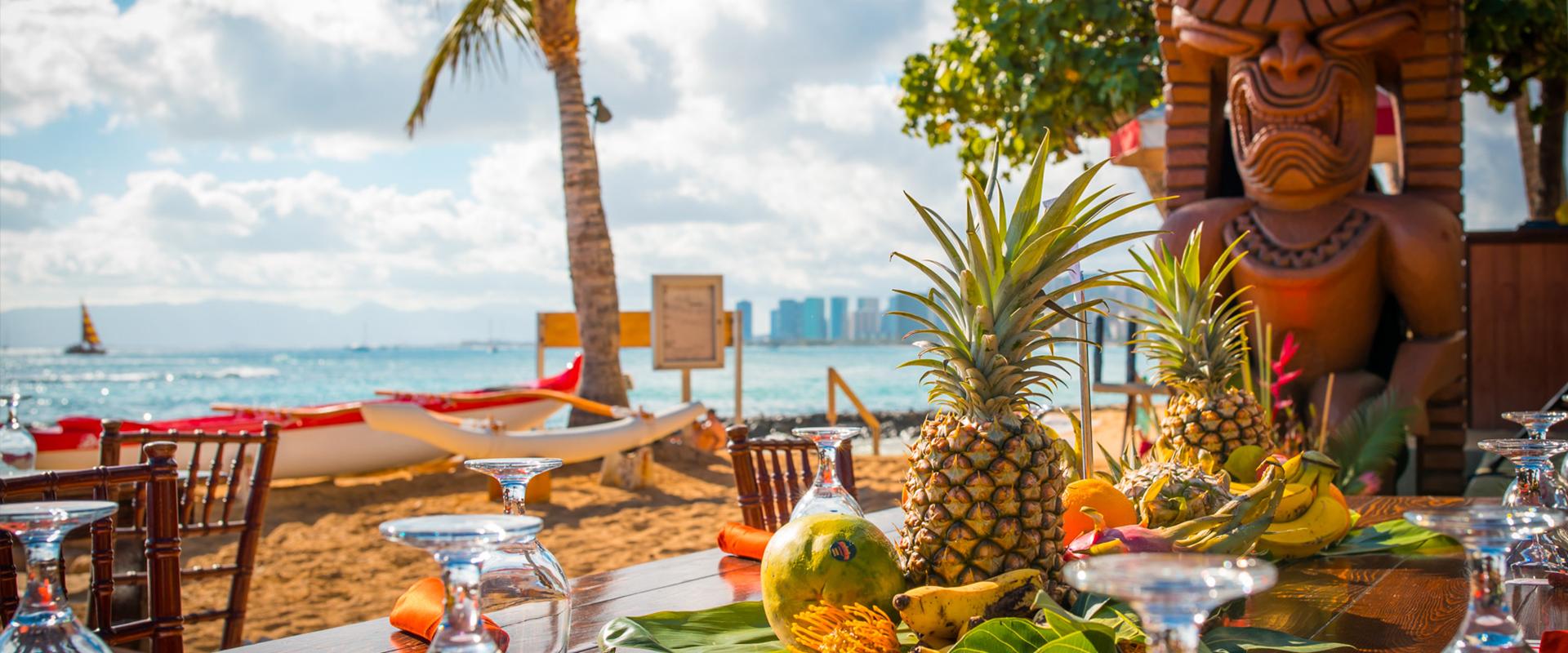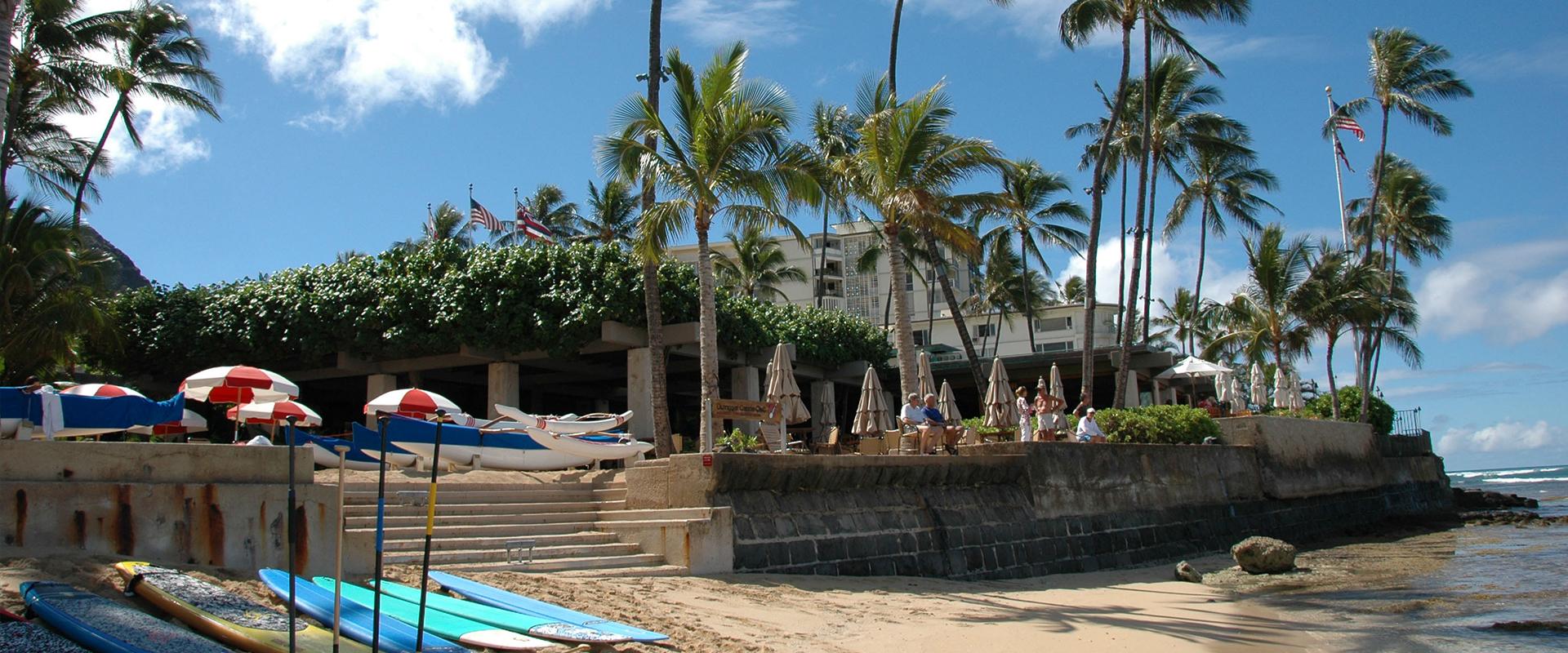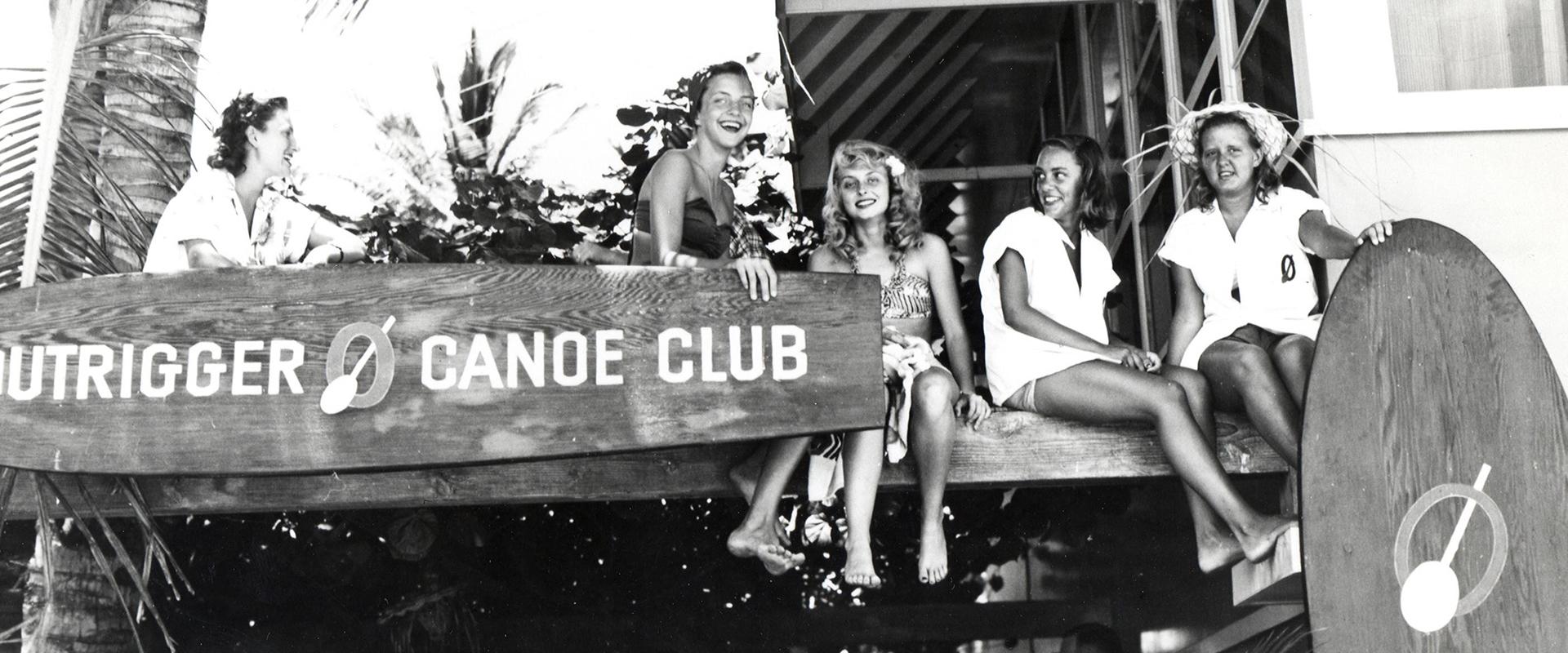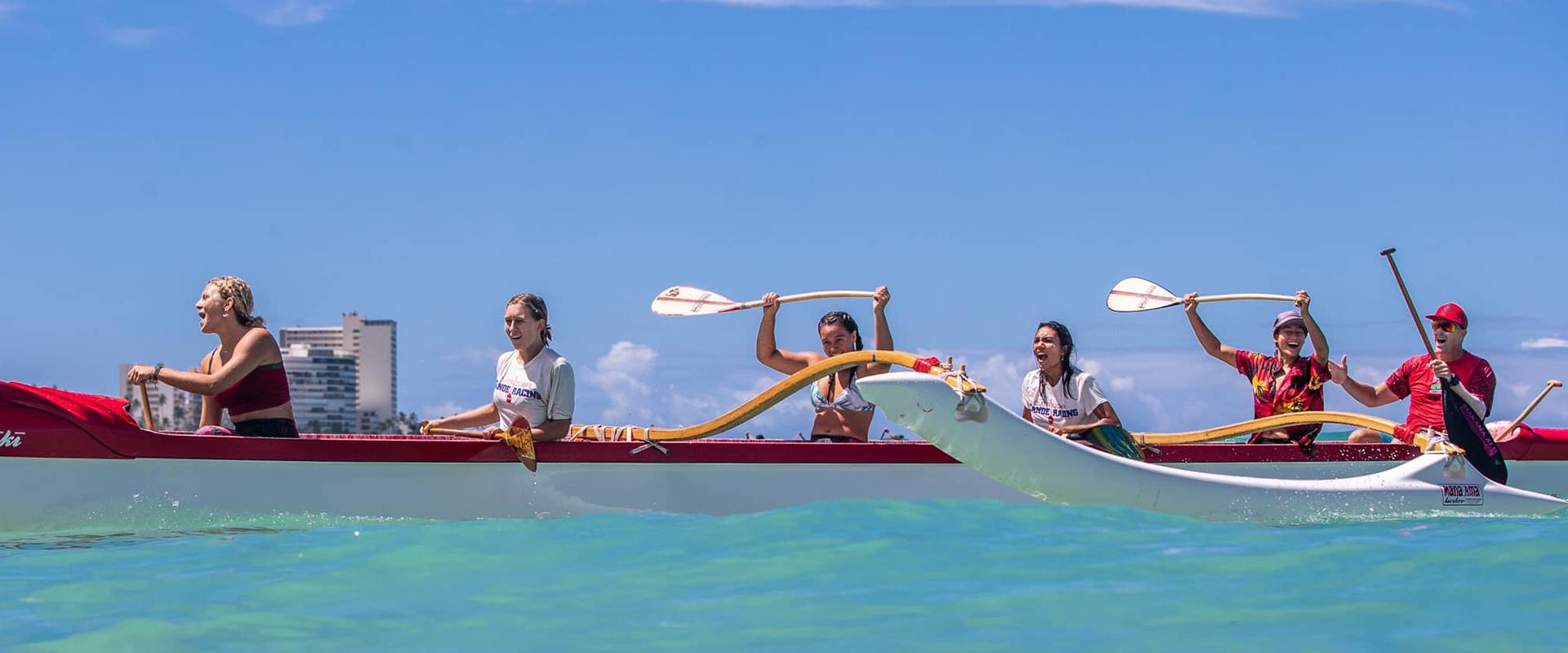The Outrigger Canoe Club Story
Kumao'o olelo
For a complete collection of Outrigger Canoe Club archives, please visit the Historical Committee's curated website at: outriggercanoeclubsports.com
When the Outrigger Canoe Club was founded, the ancient Hawaiian water sports of surfing and outrigger canoeing were on the verge of extinction. Waikïkï Beach, one of the Island's most popular surfing areas, had become increasingly inaccessible due to the hotels and mansions which had been built along its shore. Alexander Hume Ford, a malihini from South Carolina, with the support of Honolulu businessmen, established a club at Waikïkï where "men and boys could ride upright on the crest of waves." Its mission then, as it is today, is to foster and promote the water sports of old Hawaii.
In May, 1908, the Outrigger Canoe Club came into being on an acre and a half of choice beachfront land located between the Moana and Seaside Hotels (site of the present Royal Hawaiian Hotel) leased from the Estate of Queen Emma for $10 per year. On the land was a lagoon formed by Apuakehau Stream which carried the waters of Mänoa, Pälolo and Makiki Streams into the ocean where some of the best surfing locations in the Islands could be found.
The first Clubhouse consisted of two grass houses purchased from a defunct Kaimuki zoo and transported to the grounds by Club members on a borrowed truck. One was used for storage of outrigger canoes; the other for dressing rooms. The broad länais of both structures were used for social activities. Not long after, a grass-roofed pavilion was built over the lagoon for dances and larger social functions and a hau terrace became a family gathering place. After a fire in 1914 destroyed the roof of the pavilion, the Club was rebuilt and the Hau Terrace enlarged.
Over the years, the clubhouse fell into disrepair until finally the termite eaten and dilapidated buildings were condemned by the Board of Health. Faced with serious financial problems and unable to borrow money, the Outrigger nearly went out of existence. The future of the Club was precarious until the Board of Directors, headed by Walter Macfarlane, hit upon the idea of raising funds for a new clubhouse by the sale of bonds. Eventually the money was raised, the old buildings demolished, and the third Outrigger Canoe Club, designed by Vladimir Ossipoff, was erected in 1941.
After the untimely death of Walter Macfarlane in 1943 at the age of 36, the Outrigger renamed its annual Fourth of July regatta in his honor. Now in its 62nd year, it remains the longest continuous canoe paddling event in Hawaii and the only wave-riding contest on the Oahu Canoe Racing Association's schedule. Other water competitions sponsored by the Outrigger Canoe Club are the Cline Mann Paddleboard Race and the Dad Center Distance race for women.
The Outrigger is credited with the invention of Beach Volleyball, and has developed many outstanding players and teams over the years which have not only won national titles but participated in Olympic games.
The Club's favorable lease with Queen Emma Estate, renewed many times over the years, expired in 1963. A portion of the Elks Club property at Diamond Head was leased and a state of the art building was constructed. Also designed by Ossipoff, it opened in time for the 1963 Christmas Open House.
Outrigger has had many celebrity members over the years the most famous of whom was the late Duke Paoa Kahanamoku. Born in Waikïkï in 1890, Duke, a four-time Olympian, joined the Club in 1917 and remained actively involved until his death in 1968.
The Outrigger Canoe Club has grown and prospered in its nearly 100 years, surviving financial crises, two world wars, and the traumatic move from Waikïkï to Diamond Head. With a membership of over 4000, the Outrigger is known throughout the world for its spectacular location, beautiful clubhouse, but most importantly for its efforts to foster and promote Hawaiian water sports. True to its original mission, the Outrigger Canoe Club is "a place where man may commune with sun and sand and sea, where good fellowship and aloha prevail and where the sports of old Hawaii shall always have a home."


















